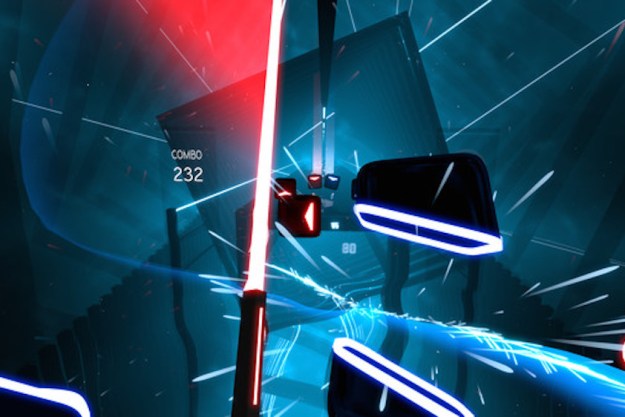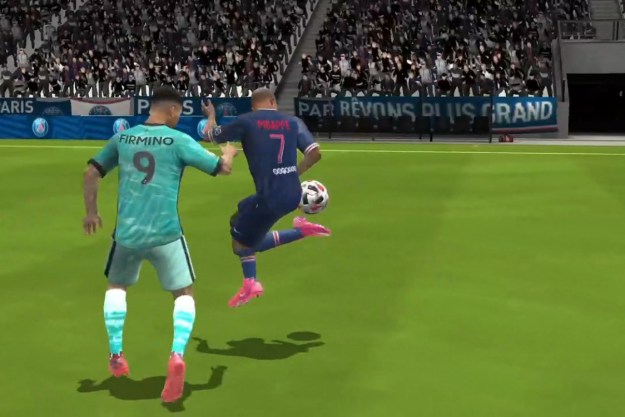Virtual reality has a strange tendency to make what would be otherwise menial tasks fun and interesting enough to wrap entire games around them. Lone Echo, a first-party sci-fi Oculus Rift game from developer Ready at Dawn, joins a growing number of VR games, such as Job Simulator, Rick and Morty Virtual Rick-ality and I Expect You To Die, which are built around the simple pleasures of picking up and manipulating objects in VR. In Echo, you control an maintenance robot on a space station. When you boil it down, the game comprises a few hours of interstellar repair and maintenance. While that may sound boring, when it came time to write our Lone Echo review, we discovered one of the best VR games to shoot you into orbit.
As it turns out, though, floating around a space station and fixing stuff in VR is pretty cool. Using the Rift’s intuitive and reactive Oculus Touch controllers, a fascinating virtual setting, and a solid, if somewhat anemic sci-fi story to bring the whole thing together, pushing buttons and plugging in batteries takes on a lot more life. Lone Echo is the closest to experiencing something like Gravity, Life or Apollo 13 of any VR game so far.
The feel of floating
In story mode, Lone Echo puts players in the first-person role of an AI-driven, humanoid robot called Jack on a small orbital mining space station near Saturn. The station is run by a single person, Captain Olivia Rhodes, and your job is to help her keep the place going, and keep her from going insane from the isolation.
As Rhodes’ tenure aboard the station is coming to an end, a strange anomaly appears near Saturn, playing havoc with the station and your robot systems. At first, it’s a minor issue, but this is a sci-fi story, so things are bound to escalate.
Most of Lone Echo is concerned with moving from place to place on the station, grabbing and interacting with objects, and as mentioned, getting around is easily the best thing about the game. To propel yourself, you can use a pair of maneuvering thrusters on your wrists, which let you control direction and speed. But much more satisfying and realistic-feeling is just using your hands. You can crawl along the floor or walls, or reach out and give yourself a big push off something and go flinging through space.
As it turns out, floating around a space station and fixing stuff in VR is pretty cool.
Other games have tried to mimic weightlessness in VR before, usually just with thruster buttons that let you fly around like you’re wearing a jetpack, but Lone Echo adds a vital missing component; the tactile sense of how you would actually negotiate a microgravity space. Finding creative ways to propel yourself turns the game into a constant navigation puzzle. What’s the best way to get yourself down to the bottom of the reactor room without getting dangerously irradiated? How can you use your inertia to avoid a series of out-of-control mining lasers?
That it works is a testament to the quality of Oculus’ Touch controls. Lone Echo absolutely relies on the idea that your controllers are an extension of your hand. Whether you’re grabbing boxes, activating your maneuvering jets, or using your wrist-mounted on-board laser cutter to slice through a bulkhead, your movements feel natural.
Lone Echo breaks up the menial tasks by letting you interact with the story with a light, touch-based conversation system. When speaking with Captain Olivia, you can respond to questions or situations by picking options from a holographic menu that appears on your wrist. While there don’t seem to be huge swings in the story based on what you say or do, Jack and Olivia’s dynamic is interesting and intimate enough to keep the plot moving and give it personal stakes. You have to fix that station, because Olivia is depending on it.
Futuresport
While Lone Echo’s single-player mode will last somewhere between four and six hours, and is worth checking out, the game’s lasting appeal is in its competitive multiplayer mode. Released ahead of the rest of the game as a free beta, Echo Arena, turns Lone Echo into a three-on-three zero-gravity sport.
In Arena, two teams compete for a Frisbee-like disc that appears in the center of the arena, with both trying to grab, fling or carry it to the other team’s end, and get it through a small goal. Just like Lone Echo, the primary challenge revolves around movement. Getting around the arena effectively by grabbing and pushing off objects is name of the game.
With the combination of thrusters, other players, and weightlessness, Echo Arena quickly becomes a tense struggle unlike anything else currently available in VR. It can get insanely fast and ridiculous as players whip around in zero-g, intercepting the disc or making amazing shots from across the arena. It’s exciting, fast, weird and exceedingly fun, especially when finding teams of similar skill levels.
It is the kind of fun that makes VR feel like a step forward for video games. Echo Arena wouldn’t be especially interesting played with a controller. With VR and Touch controls, it becomes something completely fascinating and addictive — the kind of experience that couldn’t exist in any other medium, with the feeling of “being there” that only VR can approach.
Either Echo Arena or Lone Echo would be worthwhile on their own, and together they offer two very different but related experiences in the same package. Both are innovative uses of Oculus’ tech, and put forth experiences that are only possible in this particular medium. Lone Echo might not quite be a reason to invest in VR hardware all by itself (although Oculus has slashed its prices), but there are few games that better justify the investment.
Editors' Recommendations
- Best free games on Oculus Quest 2
- Exercise with friends in FitXR’s virtual, multiplayer workout classes
- Oculus Quest 2 leak offers details on next-generation VR
- The best VR-ready laptops you can buy right now
- Why confidence in VR is rising — and Oculus Quest is to thank










